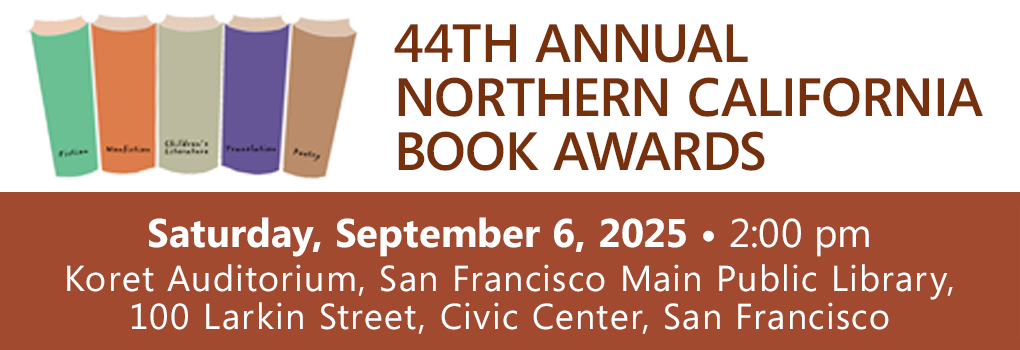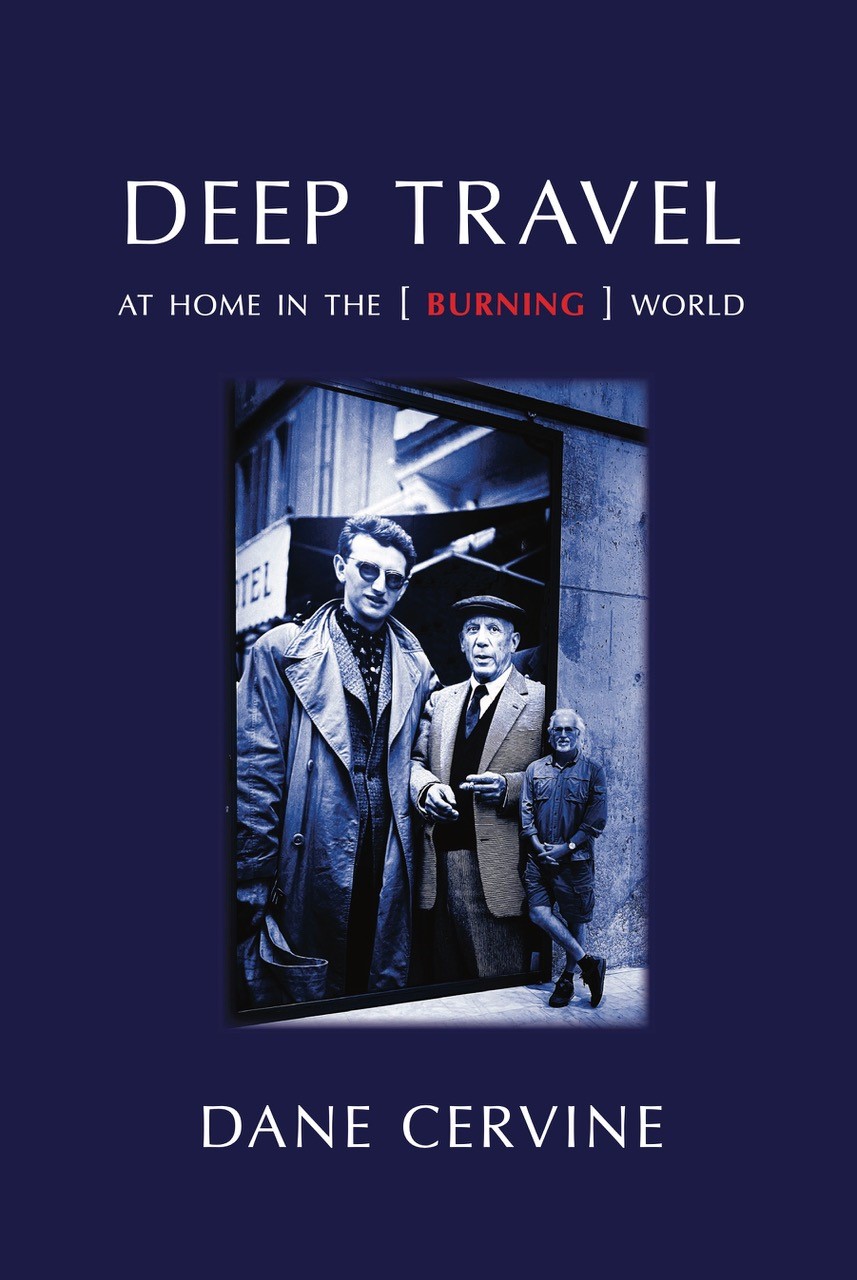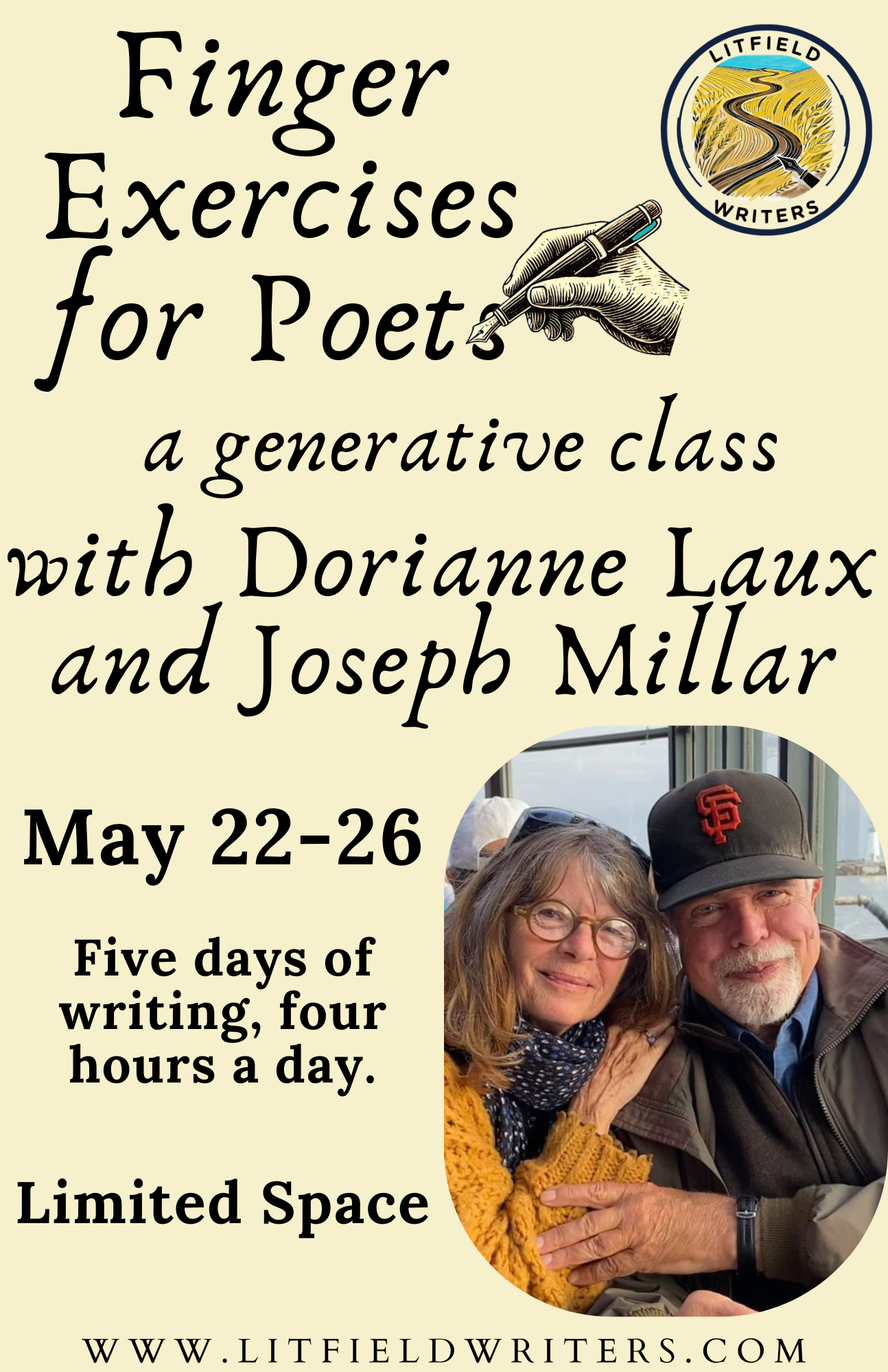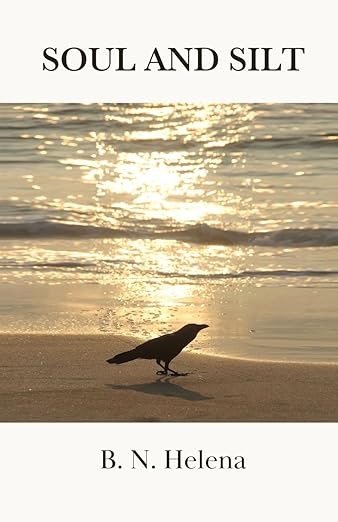
The News from Poems: Why Poetry Matters Now
by Susan Cohen
A speech delivered to The Ina Coolbrith Circle 99th Annual Awards Banquet, held on November 3, 2018, Pleasant Hill, California.
I GREW UP WRITING poetry. When I was an eighteen-year-old sophomore at Cal, I applied to my first workshop, submitted my poems, and was rejected. I thought that meant I had no talent and I didn't write another poem for almost thirty years.
Sometimes I think I had to wait until I was old enough to withstand rejection. We all know, as poets, about rejection.
But, also in those times, with Vietnam, and Civil Rights, and Watergate, I turned to writing that seemed to matter more: Journalism. The world needed fixing, and poetry seemed less important, more self-conscious. I admit it—self-indulgent.
I came back to poetry only after my generation fixed all the world's problems. That's a pretty painful joke these days.
I found myself writing a smattering of poems again after I had children—I remember being ambushed by one soon after my son's birth, another when my daughter turned thirteen. I think that's what happens when you are a poet and something affects you deeply. You can't help yourself.
By the time I did return to poetry seriously, reading it and looking for ways to study the craft, our country seemed to be a much calmer place. Only a few American poets wrote overtly political work. Those who persisted, like Adrienne Rich, faced down critics who called her angry, or polemical, or didactic.
Poets in other parts of the world risked their liberty or their lives to write, but here there seemed to be no risk involved in addressing current events except that of being called a mediocre poet. Meanwhile, people argued over whether poetry here was dead: too elite, too hermetic, too academic; or too confessional, too accessible, too prose-y; too ugly or too pretty, or too besides-the-point. Many did agree, however, that political poems tended to be bad poems.
In a way, that seemed like an admission that writing poetry WAS a self-indulgence. Admirable, even precious to some, but nowhere near crucial to all.
Poetry here wasn't anywhere close to death, of course. If that wasn't obvious a few years ago, it is now.
As I said, and you know, we write about what affects us deeply. And it has become clearer and clearer—as our country has entered a seemingly endless war; as hate has become increasingly overt, and normal, and deadly; as guns tear holes in our communities; as upheavals create more refugees than at any time since World War II; as earth heats up to the point of undeniable peril—that what happens to the broader human and planetary community affects us deeply. And we can't help ourselves.
If you look at the journals, especially online, I think you'll find a spectacular outpouring from people compelled to write both about themselves and about events beyond themselves. I may be wrong, but it also seems as if friends and strangers who have never before expressed an interest, are turning to poems not just for a wedding or a funeral, but to share a daily depth of almost unbearable feeling.
So, I'm here to say on the record that I've changed my mind. I'm ready to argue now that poetry isn't self-indulgent, that it matters, especially at a time like this—all good poetry, whether or not it sets out to be political.
And times being turbulent once again, with so much pressure to spend our hours doing something meaningful and important—or just hiding under our beds—I think it's worth reminding ourselves why.
A poem may not move people to action, but it does move people. I believe that when we read and write poems, letting others into our lives, and inviting their lives into ours, we literally expand the world's supply of empathy.
You may have noticed empathy is in desperately short supply these days.
Maybe all forms of art involve us with someone else's reality. But isn't there something special about poetry, how it can be so intimate, and so closely related both to thought and to music? The particular way it chimes deep inside you, or wallops you in the gut? An instant recognition of that person, that situation, that mind, that heartbeat behind the line—however distant in time or space or culture? A kind of understanding we might not be able to achieve otherwise.
I think that's what William Carlos Williams would call the news when he famously wrote: "It is difficult/ to get the news from poems/ yet men die miserably every day/ for lack/ of what is found there."
Recently I read that the new question is not whether American poetry is dead but whether poets are the "new public intellectuals." Tempting thought. Or maybe not. Something about this struck me as fundamentally wrong, and I realized it was the word "intellectual." Because the intellect, meaning the purely analytical part of the brain, is not primarily where poetry resides. That's clear to me, especially, coming from journalism. Writing news and writing poetry, even if it is about the news, uses very different muscles.
And though I believe good reporting and journalistic writing can generate sympathy, I'm not sure it can inspire the kind of empathy I'm talking about, empathy that allows you briefly to slip someone else's identity on—especially now when an increasing number of new and varied poetic voices find ways to invite us into their stories. Earlier, I mentioned Adrienne Rich, who argued that the personal is the political when she wrote about loving and touching another woman. Never has that seemed truer than recently as I've been reading poets from so many different backgrounds and experiences—of ethnicity, race, age, gender, nationality, language—exposing their truths to me.
Because poets are truth-seekers, and that's another reason our work matters. Aren't poems one of the best ways to ask questions, at a time when too many people offer too-easy answers?
Unlike journalists, we're allowed to make things up—that famous license—but only in the pursuit of something that feels true, not fake. We create a kind of artifice, sometimes even a persona, but I think we can recognize a poem, whether we wrote it or someone else did, that feels deceptive and untrue at its heart. Like empathy, truth also is in desperately short supply.
Maybe poetry as truth-seeking also relates to poetry as a way of seeing, of making connections through metaphor and with that unanalytical part of the brain. This allows poems to say more than one thing at once, to be "about" more than one thing at a time, and I don't know if there is another kind of art that does this, or at least does it so well.
There is another, fundamental way poetry matters. More than any other form of writing, our form is not just made of language, it's about language. Think of how many poems originate from your fascination with a word (does anyone get as excited as a poet does about a new word?), or how you get taken by surprise because you're following your ear as you write.
These days, as during other intensely political times, language is both a weapon—or being weaponized as the politicians say—and under attack. I'm not only referring to diminished vocabularies but to the purposeful warping of meaning.
Poets keep investigating language, combining words in ways words are not used to being combined, re-discovering and rescuing vocabulary from attics or cellars, even inventing words ourselves. Poems make language sing new songs, and in the process poets become guardians of language. Because we care so very much about finding the single right word. We bring precision. Who else can spend hours taking a comma out, putting it back in, finally taking it out, and then the next day putting it back in again?
I'm guessing that I haven't told anyone here anything you don't already know: that whatever we choose to write about, we can be caretakers for precision over carelessness, for empathy over demonization, and a kind of truth that might be expressed in no other way.
Maybe you haven't been thinking of poetry as a subversive act up to now. But the dictators always do.
I want to be clear that I'm not saying everyone should or must write overtly political poems. However a poem starts out for each of us—as a feeling or thought, with an image, from a prompt or word list, as an exercise in traditional form, in response to a work of art or the natural world, in pleasure, amazement, amusement, anger or anguish—it will go to where the heat is. Perhaps it meanders first, maybe we have no idea where it's taking us until after many revisions, but it will head to what we truly care about.
What if current events are where we find that heat? Then I think we must attempt to write it. There are plenty of bad political poems. I've written some, so did Adrienne Rich. What makes a poem weak is not its political content, but its lack of poetry. We must find the heat, but we must also remind ourselves to keep finding the poetry. To use images, language, syntax in inventive ways, and above all to keep surprising ourselves.
Otherwise, we risk coming off as well-meaning but boring, predictable, or worse, as seeming to pat ourselves on the back for the virtue of our beliefs. Otherwise, we write only to make ourselves feel better. And we can make ourselves feel better by marching or getting out the vote.
I'm saying out loud to you what I have to say to myself every time I sit down to write these days. Because I'm a self-confessed news junkie. As I said, I can't help myself.
But also, who is to define what is political. If you share your love for humpback whales, Amazonian frogs, or snowy plovers, isn't that political now that the natural world is at stake because not enough people love it enough? Who knows what readers will discover and find meaningful in any poem you write?
About five years ago, I wrote a short poem imagining my grandparents coming to this country. It was finally published last year. (Remember what I said about rejection?) By the time it appeared, we were in the midst of our awful, angry immigration crisis. And another poet chose to present my grandparent poem at a reading, saying she picked it because it struck her as political.
Even more recently, when I posted a love poem online, I was amazed that more than 100 people clicked "like" by the next day—not just other poets, but also friends, journalists, strangers, and family members who never read poetry, not even mine. Many commented that they needed a love poem right then, and someone wrote that he appreciated its moment of tenderness—appearing as it did during the Kavanaugh Supreme Court hearings.
So, go vote. Go write. People need action. People also need poetry. ![]()
Susan Cohen was a newspaper reporter, contributing writer for the Washington Post Magazine, and faculty member of the University of California Graduate School of Journalism before studying poetry while on a Knight Fellowship at Stanford University and then earning an MFA from Pacific University. She is the author of a non-fiction book, two poetry chapbooks, and two full-length books of poems, Throat Singing and A Different Wakeful Animal, winner of the 2015 David Martinson—Meadowhawk Prize from Red Dragonfly Press. Her most recent poems appear in the American Journal of Poetry, Greensboro Review, Jabberwock Review, Nimrod, Poetry Flash, Spillway, Tar River Poetry, and the anthologies, Know Me Here: An Anthology of Poetry by Women; America, We Call Your Name: Poems of Resistance and Resilience; and Fire and Rain: Ecopoetry of California.
— posted January 2019
































































































